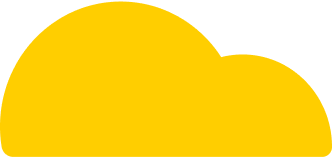How We Forgive Ourselves
Guilt and regret can be signals, but they’re not useful states to hold on to. But if we live in the moment, we can let go of that point of comparison of what we would like life to be and life as it is. In this episode of Everything In Between, Andy is in Death Valley, California, exploring how we let go of guilt and regret.
Try 14 days freeBetter mental health starts with Headspace. Unrivaled expertise to make life feel a little easier, using guided meditations, mindfulness tips, focus tools, sleep support, and dedicated programs.
Try 14 days free
(wind blowing) (serene music) You have a lot of time on your hands in the monastery. There's a lot of time to think about stuff. And it would be very easy just to sit there and replay things over and over again. Feeling bad about the things you might have said or done in your life. And I remember the teacher, at least at our monastery, said, "Okay, you get a minute. You get a minute of regret, that's it." (soft music) Something that has always kind of fascinated me is the idea of sort of guilt and regret. I meet so many people who say they are just always caught in that cycle of guilt and regret. And obviously, so much of the teaching of meditation, and the way we kind of approach meditation, the way we approach life, is about how to be present in the moment. And yet, by definition, if we're caught up in thoughts of guilt and regret, we're living in the past. So it's worth just sort of unpacking that a little bit, and saying, maybe, is it possible to live with less guilt, with less regret? Is there a way of sort of letting go of it? I think the point is that regret has its place. I think we, I would say guilt, arguably, has its place as well. More as a signal, not as a way to kind of beat ourselves up, to criticize ourselves, give ourselves a hard time. I think guilt is a, or the way I see it, the way I sort of live with it in my life, is that its a signal that I've done something that's not in keeping with the way that I would like to live my life. And that signal tells me that there is a possibility that I can learn from that, and that in the future, not repeat that mistake again. Recall that mistake. So, rather than kind of dwelling on it and playing it over and over again, thinking I wish I could have done it differently, the point here is that if we could have done it differently, we would have done it differently. Then people say, "Yeah, I know, but I knew there was another way." Well, yeah, we knew there was another way. Intellectually we knew there was another way. Retrospectively we knew there was another way. But in that moment, we genuinely did the best that we could do. (serene music) We're all human, you know. We're all just trying to work this out. We're on a journey. And it's a shared journey. But along the way we're gonna, you know, things are gonna happen. We're gonna do things, we're gonna say things, that don't necessarily meet with the way that we would like to live life. And I think that's the importance of living moment to moment. If we're living, really fixated on an expectation, then it's an expectation that was formed in the...
Details
About your teachers
 Andy PuddicomeHeadspace Co-founderMore about Andy
Andy PuddicomeHeadspace Co-founderMore about AndyA former Buddhist monk, Andy has guided people in meditation and mindfulness for 20 years. In his mission to make these practices accessible to all, he co-created the Headspace app in 2010.
 Eve Lewis PrietoHeadspace Director of MeditationMore about Eve
Eve Lewis PrietoHeadspace Director of MeditationMore about EveEve is a mindfulness teacher, overseeing Headspace’s meditation curriculum. She is passionate about sharing meditation to help others feel less stressed and experience more compassion in their lives.
 Dora KamauMeditation TeacherMore about Dora
Dora KamauMeditation TeacherMore about DoraAs a meditation teacher, Dora encourages others to live, breathe, and be with the fullness of their experiences. She loves meditation’s power to create community and bring clarity to people’s minds.
 Kessonga GiscombeMeditation TeacherMore about Kessonga
Kessonga GiscombeMeditation TeacherMore about KessongaKessonga has been an acupuncturists, therapist, and meditation teacher, working to bring mindfulness to the diverse populations of the world.
 Rosie AcostaMeditation TeacherMore about Rosie
Rosie AcostaMeditation TeacherMore about RosieRosie Acosta has studied yoga and mindfulness for more than 20 years and taught for over a decade. Rosie’s mission is to help others overcome adversity and experience radical love.

Your lifelong guide to better mental health
Stress, sleep, and all the challenging emotions — care for your mind with the everyday mental health app that's shown to make a difference.
Try 14 days free
Look after your mind
Proven guided meditations and programs to help you stress less, sleep more soundly, and better navigate life’s challenges

Science-backed
Studies show that using Headspace for 30 days can reduce stress, increase resilience, and improve overall well-being

Explore 1000+ expert-led exercises
Access our library of meditations, breathing exercises, and guidance videos for stress, sleep, focus, everyday anxiety , parenting, and more.




Members are enjoying happier and healthier lives
- © 2026 Headspace Inc.
- Terms & conditions
- Privacy policy
- Consumer Health Data
- Your privacy choices
- CA Privacy Notice


